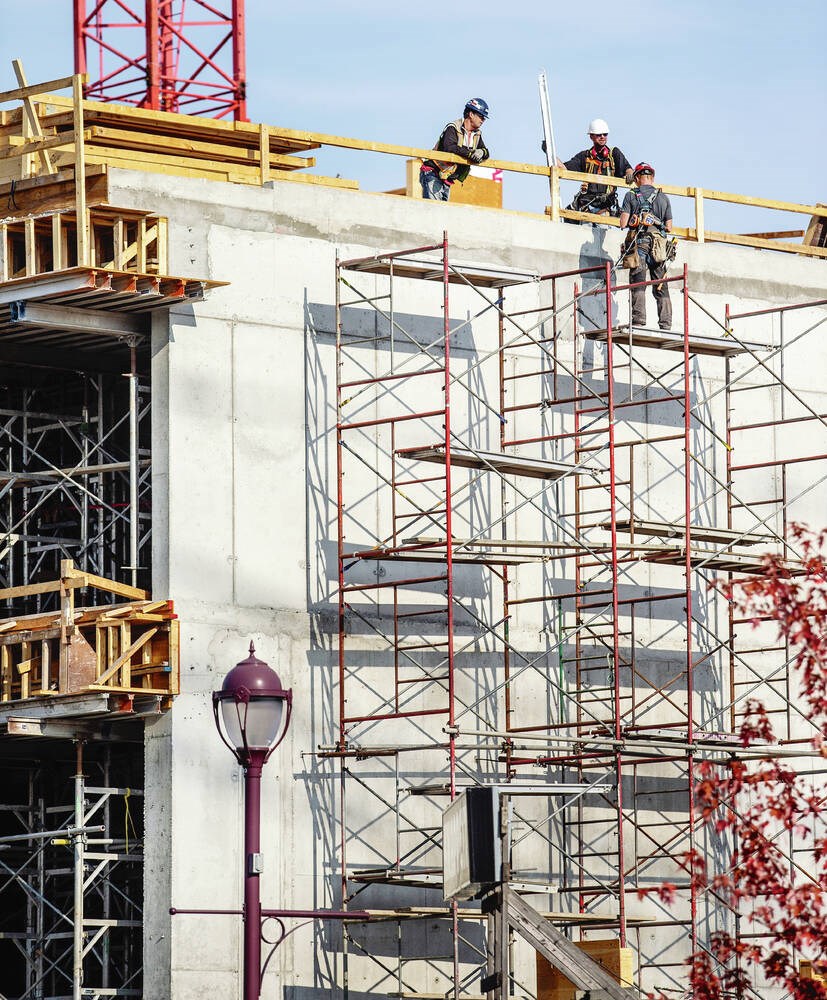Despite a desire within the city to build on the momentum of economic recovery from the pandemic, rising interest rates are likely to hold Victoria’s economic growth in check, according to data released Monday by the Conference Board of Canada.
While the board said Victoria’s economic outlook over the next several years remains positive, it expects growth will be slower than previously forecast due to the higher inflation and rising interest rates.
“We forecast Victoria’s real output will grow by 2.6 per cent this year, followed by a 1.8 per cent increase in 2023,” the board said in its Major City Insights report.
The publication, which offers forecasts for growth in Canada’s 13 major cities noted GDP growth in Victoria had been “a solid 1.1 per cent in the second quarter” of this year, but the city’s economy slowed to 0.4 per cent growth in the third quarter and will expand by just 0.5 per cent in the fourth quarter.
Growth next year is forecast to be 1.8 per cent.
The report singled out housing and the real estate market as cooling the overall economic temperature in the city as it noted real estate sales have dropped well off last year’s pace and single-family home prices started to decline.
“Our call is for total housing starts to decline by 39 per cent this year and a further 19.2 per cent in 2023,” it said, adding single-detached starts will fall by 27.7 per cent this year, while multiple-unit starts will drop by 41.5 per cent.
That mix of rising interest rates and a cooling housing market is expected to slow things down in the construction industry as its economic output is forecast to drop 2.2 per cent this year and another 0.5 per cent next year.
Employment is expected to continue to improve and the board forecasts a 3.8 per cent increase in the number of people working ion the region and Victoria to boast an unemployment rate of 4.3 per cent for 2022 but increase to 4.6 in 2023.
Transportation, healthcare and social assistance, arts and recreation sectors is expected to be strong, but the board expects the accommodation and food services sector to suffer a 5.1 per cent drop this year after its 42 per cent rebound in 2021.
The board forecasts the consumer price index in Victoria to rise by 7.6 per cent this year before easing back down to growth of four per cent in 2023 and 2.3 per cent in 2024.
>>> To comment on this article, write a letter to the editor: [email protected]



